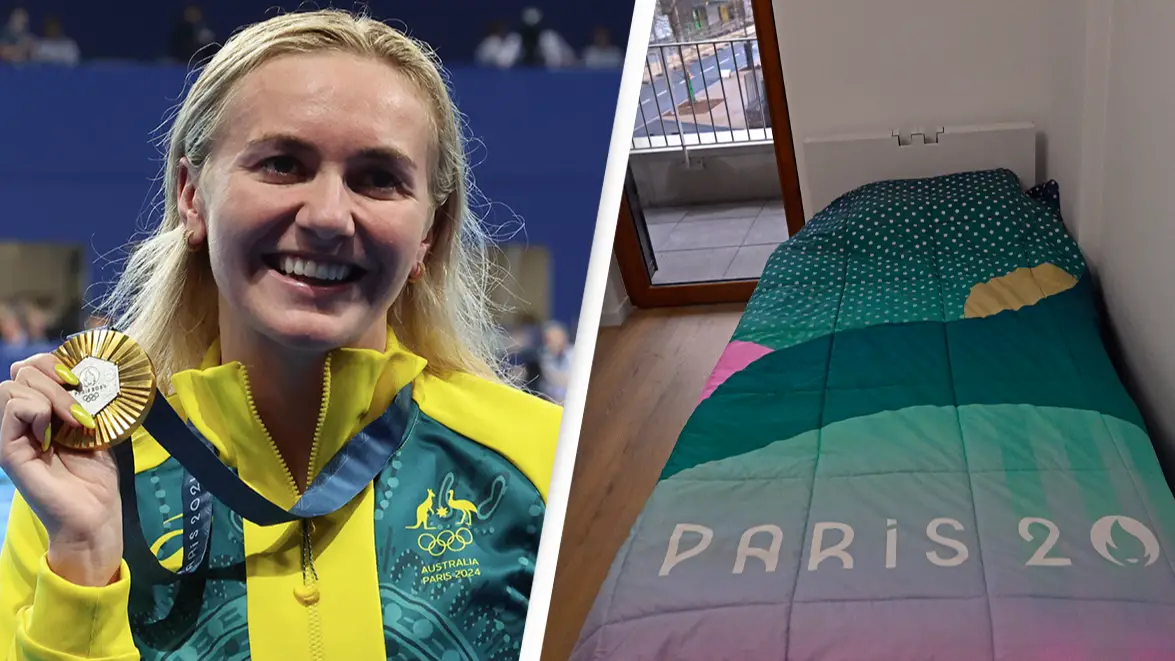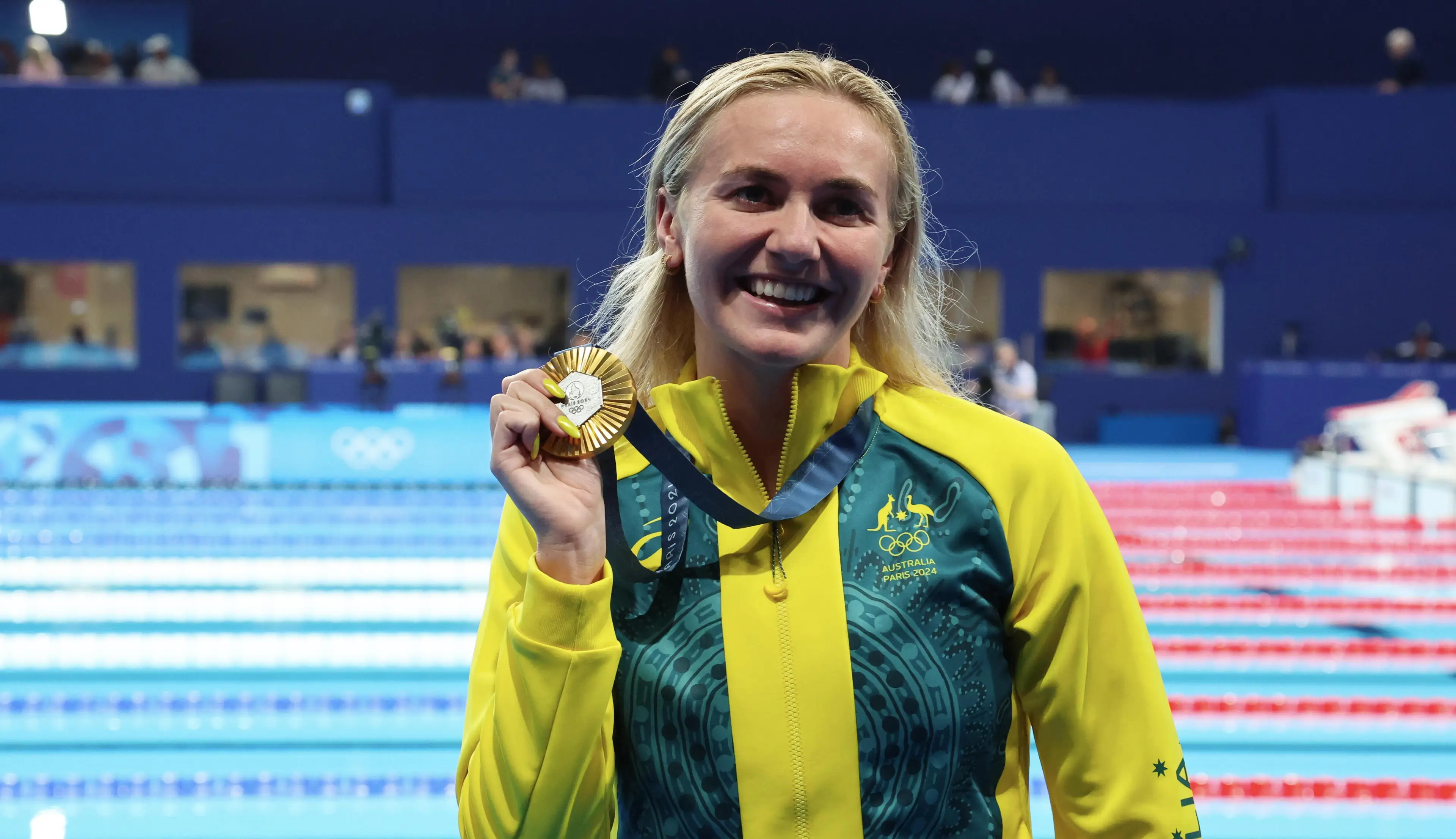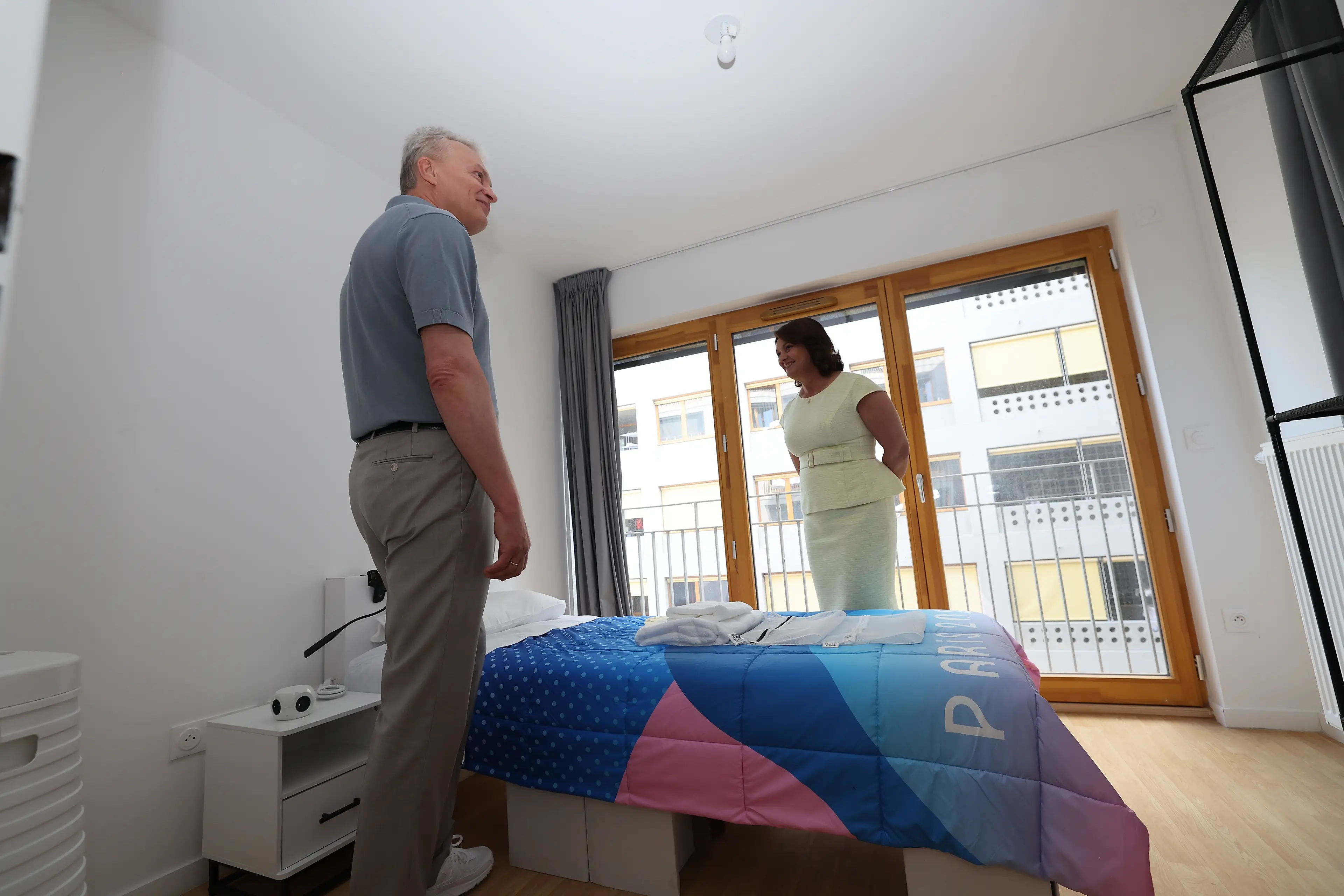
Australian athlete Ariarne Titmus sparked criticism after suggesting the conditions in Paris' Olympic Village were the reason she didn't break her world record.
It wasn't exactly a poor performance for Titmus in Paris on Saturday (July 27), when she took on the 400m freestyle race and managed to win a gold medal with a time of 3:57.49.
The win made Titmus the first-ever female to take three Olympic medals in the event, but her time fell just short of the world record she secured in the 2023 world championships - 3:55.38.
Advert
Titmus said after her most recent Olympic win that she felt the pressure for the race 'more than anything in [her] life'.
"I’m definitely good at handling the pressure, but I’ve definitely felt it," she said. "The Olympics is different. It’s not like anything else. It’s not about how fast you go, it’s about getting your hand on the wall first. So I’m really happy to have done that tonight."
But while Titmus was happy with her win, she admitted she'd thought she'd be able to push herself even further if it weren't for one element of life at the Olympics.

In an interview conducted on Sunday (July 28), she said: "It probably wasn't the time I thought I was capable of, but living in the Olympic Village makes it hard to perform."
The Olympic Village is where the competing athletes live during the games, and is equipped with accommodation, shops, lounges and dining halls.
This year, organizers were particularly focused on a sustainable approach to the Olympics, meaning athletes have been living with a water-cooling system instead of air conditioning, refillable cups, and even cardboard bed frames.
Titmus suggested the conditions weren't the best to help athletes prepare for their events, as she said: "It's definitely not made for high performance, so it's about who can really keep it together in the mind."
In response to Titmus' claims, Paris 2024 organizers told UNILAD: "On the conditions pointed out by some athletes, Paris 2024 is in constant liaison with the National Olympic Committees and stands ready to help with any further changes needed to catering or transportation services."

"It is our priority to meet the performance needs of athletes from around the world," the statement continued. "That’s why we have worked with our suppliers to adapt our food service to the athletes’ needs. these changes have significantly improved the quality of the service. For example, the quantity of grilled meats on offer is now 900 grams per athlete, per day.
"On transportation, significant progress has also been made, with 100 percent of services provided and a punctuality rate of over 90 percent. In addition, all the competition sessions were able to start on time. Today, the transport of accredited persons for Paris 2024 represents more than 1,300 buses, the equivalent of the city of Lyon bus network.
"Finally, on the beds, a key benefit of Airweave mattresses is that they are customisable to an individual’s morphology and so can meet specific comfort and preparation needs. The quality of Airweave mattresses is recognised and approved by National Olympic and Paralympic Committees and already proved its comfort to athletes during the Tokyo Games."
Titmus isn't the only athlete who has taken issue with the living arrangements, however, with American tennis star Coco Gauff having revealed that some of her teammates have sought other accommodation while in Paris for the games.
However, Australian Swimming head coach Rohan Taylor hit back at Titmus' comments as he implied the athletes should not let conditions distract them.
"The Olympics has always been a challenge," he said. "Every Olympics I've been a part of, every Olympic Games that you see, is a test of athletes' ability to come here, compete and perform when it matters.
"It's about how you manage yourself and whatever environments are presented, whatever the beds are, whatever the food is, everybody deals with it."
Taylor added the Australian Olympic Committee has sought to make the conditions more comfortable by organizing extra food, air conditioning and private transport for its athletes.